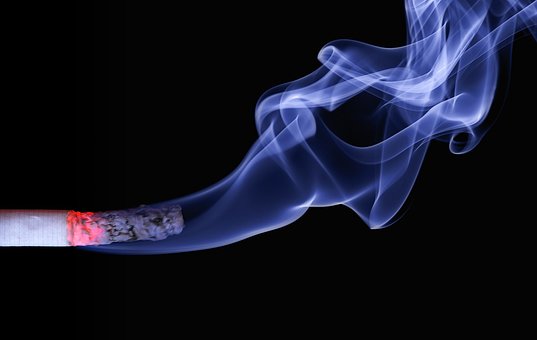Overall Health and Life Span
- More sick days are taken by smokers than nonsmokers. They also have higher costs associated with health care.
- Tobacco users can face premium increases of up to fifty percent more than non-smokers from their insurance providers.
- A minimum of ten years can be subtracted from your expected lifespan if you smoke.
- In this country, smoking is the leading cause of death that is brought on prematurely and can be avoided.
Cancer
- The most common way to get cancer and die from the disease is through smoking.
- The risk of developing cancer in almost any part of the body is increased by smoking. Such as the lungs, throat, and mouth; the liver; the breasts; the colon; the pancreas; and the stomach.
- Tobacco smoke contains toxins that can alter or damage the DNA of living cells. DNA is referred to as the “instruction manual” of the cell because it directs the normal growth and function of the cell.
- Damage to DNA can cause a cell to proliferate uncontrollably and lead to the development of a tumor that is cancerous.

Cardiovascular Disease
- The risk of coronary heart disease and stroke is increased by a factor of two to four when a person smokes.
- Even people who smoke fewer than five cigarettes per day have a chance of developing cardiovascular disease in their early stages.
- The harmful effects of smoking include the thickening and narrowing of the blood vessels. Because of this, your heart will have to beat at a faster rate, which will increase your blood pressure.
- Additionally, clots of blood may form.
Ailments of the Respiratory System
- Emphysema and chronic bronchitis are two lung diseases that can be caused by smoking.
- Tobacco smoke has the potential to either set off an asthma attack or make an existing one worse.
- People who smoke have a 12 to 13 times greater risk of dying from the chronic obstructive pulmonary disease (COPD), a condition that includes emphysema and chronic bronchitis, than those who do not smoke.
Wound Healing
- The components of tobacco can cause damage to your blood vessels and reduce the amount of blood that flows to wounds, both of which can slow the healing process. They have also been shown to reduce the amount of oxygen in the blood.
- Scar tissue can become weaker as a result of smoking, which also lowers the likelihood that skin grafts will be successful.
- Even if you only have one cigarette per day, it can hinder the body’s ability to recover from injuries or illnesses.
Pain
- Some conditions can be made more uncomfortable by smoking. In this category are conditions such as fibromyalgia, headaches, rheumatoid arthritis, tooth and gum pain, and back pain.
- Some of the chemicals in cigarettes could provide temporary pain relief. However, even after you’ve given up smoking, you’ll still be experiencing pain. Your discomfort may become even more intense as nicotine withdrawal symptoms set in.

Vision and Eye Problems
- Tobacco smoke contains chemicals that can reduce blood circulation and the amount of oxygen that reaches the eyes. This can result in a wide variety of issues affecting one’s vision and eyes.
- Dry eye syndrome is brought on by smoking. This may result in blurred vision, stinging in the eyes, and discomfort when wearing contact lenses.
- The disease known as macular degeneration is brought on by smoking, and this disease in turn causes irreversible damage to the retinas. It is the most common reason for blindness.
Women’s Health
- Both smoking and being around other people who are smoking can make it more difficult to conceive a child.
- It’s possible that smoking caused your ectopic pregnancy. This complication arises when a fertilized egg implants itself in the abdomen in a location other than the uterus.
- The risk of having a miscarriage, stillbirth, premature birth, low birth weight, and birth defects is increased when a woman smokes during pregnancy.
Mental and Emotional Health
- The ability to fall asleep and the quality of sleep that you get are both negatively impacted by smoking.
- Your feelings of stress and anxiety may become more intense if you smoke. In addition to this, smoking can make the symptoms of depression worse.
- When someone smokes, the effectiveness of certain medications used to treat mental health conditions like depression and anxiety is reduced.
- Your symptoms of post-traumatic stress disorder (PTSD), such as anxiety, re-experiencing, avoidance, and numbing, may become more severe if you continue to smoke.
- Tobacco use is associated with an increased risk of developing post-traumatic stress disorder (PTSD), HIV, depression, and substance use disorders.

